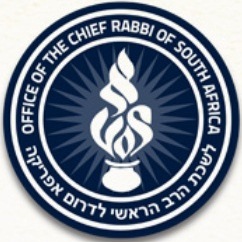
Parshot/Festivals

Chief Rabbi’s Rosh Hashanah message – 5775
CHIEF RABBI WARREN GOLDSTEIN
Vespasian, the Roman military commander in Judea, had just been appointed emperor. He had deep respect for Rabban Yochanan ben Zakkai, the great Talmudic scholar and leader of the Jewish people, and so granted him one request, including the possibility of saving Jerusalem and the Temple.
Contrary to conventional wisdom, Rabban Yochanan ben Zakkai boldly requested: “Give me Yavneh and her sages.” (Gemara Gittin 56b). He believed that Torah learning is vital to the Jewish future, that it is our lifeblood and the secret to our continuity.
Jewish history has vindicated the seemingly controversial decision of Rabban Yochanan ben Zakkai: it is an undisputable fact that throughout the centuries since then, communities and individuals for whom Torah learning has been a central value and way of life, are the ones who have survived and thrived; they have been beacons of vitality, growth and inspiration.
The depth and breadth of Torah learning going on in the South African Jewish community is an important sign of our vibrancy and strength, and bodes well for a future of vitality and growth. We have much to be proud of and grateful for.
As we approach Rosh Hashanah with all of our resolutions for the new year, let us all commit to enjoy the full benefit of the wonderful Torah learning programmes offered by our shuls.
Torah learning is spiritually, intellectually and emotionally refreshing. The Mishnah in Pirkei Avot (6:1) says that a Torah scholar is like a ma’ayan hamitgaber, a spring which flows stronger and stronger.
Rav Chaim Volozhiner explains the analogy: Even if there is mud covering the spring, the waters will burst forth and wash away the mud until the spring returns to flow as it did before.
Like an overflowing spring the life-giving waters of Torah give us increasing strength. As long as the fresh waters of pure Torah are pumping, they will cleanse all impurities, uplift us, and bring renewed vitality. Thus, according to the Midrash (Eichah Rabbah), G-d says: “Even if they were to leave Me but would learn my Torah, the light within it will return them to the good.” Torah learning changes our perspective on life and enables us to understand Hashem’s worldview, thus bringing us closer to Him.
The poignant prayer of Avinu Malkeinu, Our Father Our King, refers to two different aspects of our relationship with Hashem. Rav Chaim Volozhiner explains that describing G-d as a king reflects our identity as His loyal servants who must obey His commandments, even against our will; describing Hashem as a father refers to our identity as His children, which reflects a relationship of love and closeness.
When we learn Torah, we relate to Hashem as a caring Father who lovingly explains to His children how to live and why. As we learn Torah we gain a better understanding of His instructions, guidance and wisdom for our lives. The exact sequence of the wording is significant: We refer to Hashem first as our Father and then as our King.
This Rosh Hashanah let us all resolve for the new year to rejuvenate and inspire ourselves by embracing and participating in the Torah learning opportunities available across our community. In this merit may Hashem inscribe and seal us all for a good and sweet year filled with all blessings.





David
September 17, 2014 at 5:26 pm
‘Maybe you should apologise to Rav Berland and his followers for being cruel for no reason before telling others what to do.
Not sure what Yeshiva you went to that taught you not to do Chesed to Jews in need.’
David
September 18, 2014 at 9:33 am
‘Who actually appoints the Chief Rabbi? Who does he report to? ‘
Jonathan
September 18, 2014 at 2:46 pm
‘Do as I say but not as I do.
Clearly Torah learning does not always filter down from the head to the heart.’
Martin
September 28, 2014 at 11:33 am
‘You are complaining because someone is saying that a person accused of numerous sexual assault crimes should be arrested and brought to trial? That requires an apology? NO That requires congratulations!!’